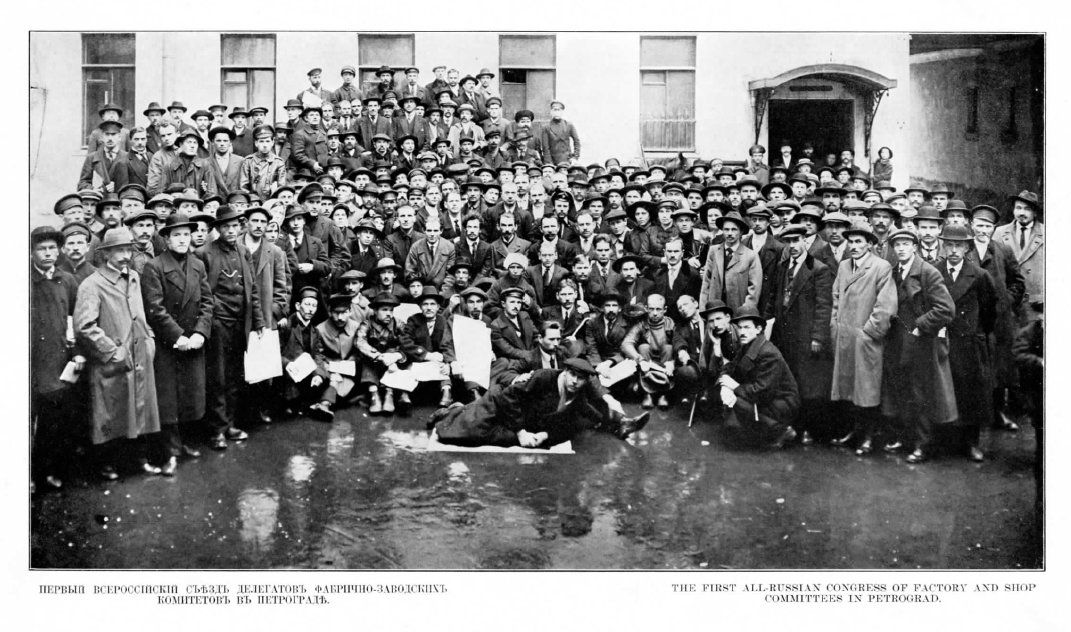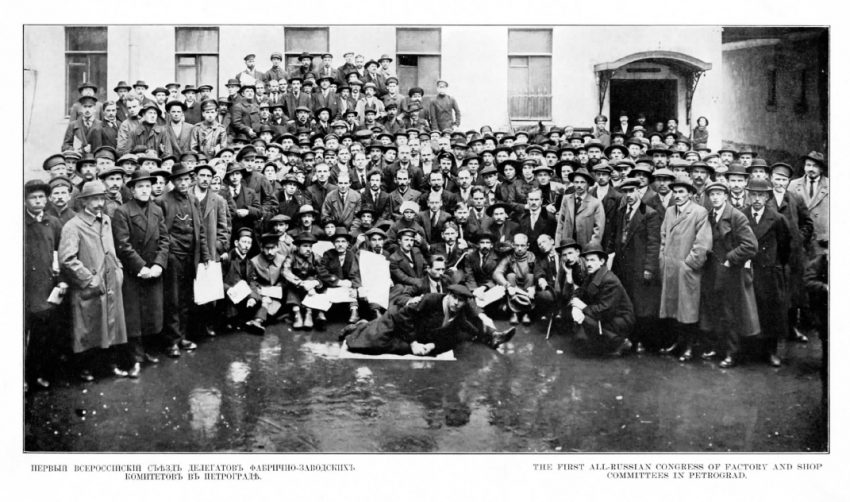Russia 14
Fear of Competition from RT (Russia Today)

Fear of Competition from RT (Russia Today)
———————————————————————————————————————————
 Author: Julio Martínez Molina | internet@granma.cu
Author: Julio Martínez Molina | internet@granma.cu
25 October 25, 2018
A CubaNews translation.
Edited by Walter Lippmann.
“The closure of RT by authorities in other countries is due to fear of competition,” Russian President Vladimir Putin said on Thursday, October 18, during the international discussion forum Valdái, which hosts Sochi.
Russia Today (RT) has been described since its inception, both in the United States and in some nations, as a “hostile foreign power” or “foreign agent on home soil. In fact, on July 17, it was announced that “the Australian Federal Police has opened a preliminary investigation into the chain as a suspected foreign agent.
The real sense of bitterness – or really fear or hatred – towards the Russian platform is that it is one of the few alternative voices charged with providing angles of analysis different from those provided by the mainstream American media. Organs that, no matter how “anti-Trump” they may seem, are part of the U.S.-owned corporate system.
RT represents one of the few media conglomerates on the planet (two others, bridging differences, would be Telesur in Caracas and Hispan TV in Tehran) that, without bowing to the dictates of the American empire, try to offer an objective global perspective of the local, regional and global political reality.
A balanced vision that weighs multipolar power and the sovereignty of peoples; a vision that deconstructs each deception perpetrated by the lie-repeating apparatus at the service of Washington, that gives voice to otherness and positions itself as an independent entity, cannot be well received by the Yankee powers and their European allies or clones.
The witch-hunt against the Russian station is yet another of the fronts of open war against Moscow, in the political, diplomatic and sports spheres…
Not even at the height of the Iron Curtain did American cinema and television produce as much volume of audiovisual material against Russia as they do today.
The order of the White House was and is to export that hatred. Not surprisingly, in 2016, a European Parliament report compared the “danger” of RussiaToday “with that of the Islamic State”.
The Western aversion to the progressive resurgence of the great Eurasian nation in its economic, military, scientific and communicational capacity is expressed in dissimilar ways. Attacking its website is not the least significant.
The increasing number of people who tune into the RT signal in the world puts the Western think tanks and their corporate media apparatus into a warning position. Thus, the rage against the Russian network is not only expressed in the organs of the United States, but also in a good part of the Europeans.
El País, the most read Spanish newspaper in the Spanish-speaking universe, has the challenge of the web as one of its obligatory daily tasks, along with the daily attack on Venezuela.
It’s Not Trump. It’s the Military-Industrial Complex
It’s Not Trump. It’s the Military-Industrial Complex

By Manuel E. Yepe
http://manuelyepe.wordpress.com/
Exclusive for the daily POR ESTO! of Merida, Mexico.
Translated and edited by Walter Lippmann.
An interesting controversy has been sparked on the Internet. It’s being reproduced by the conservative publication The American Conservative (TAC), published in Washington DC, on the role of US President Donald Trump in the alleged rapprochement with Russia that culminated with his meeting with Russian President Vladimir Putin in Helsinki.
Ultra-conservative lawyer and writer Bruce Fein, senior partner at Fein & DelValle, former deputy attorney general and general counsel to the Federal Communications Commission during Reagan’s presidency, assesses Trump’s merits in defending the most reactionary positions and their contradictions with those of Putin:
“President Donald Trump has strengthened, not weakened, U.S. military and economic opposition to Russian President Vladimir Putin. This situation has not been properly clarified and is of the utmost importance. Regardless of the triumphs Trump claims over NATO or Vladimir Putin, the Military-Industrial Counter-Terrorism complex (MICC) governs U.S.-Russian ties as it has for seven decades. The nightmare of the MICC is not to lose a friend, but to lose an enemy, says Fein.
“False information is obsessed with personalities. Authentic information assumes that nations have no permanent friends or enemies, but only permanent interests. The executive branch, in particular, has a permanent interest in exaggerating threats in order to increase its own power and superfluous military spending.
According to Fein, President Barack Obama, in opposition to Russian objectives, refused to provide military assistance to Ukraine, while Trump has authorized the transfer of military weapons to that country. Obama limited the U.S. military mission in Syria to the goal of defeating ISIS or the Islamic State, while Trump has expanded that mission to remain in Syria indefinitely and to influence the outcome of that country’s protracted civil war.
Trump plans to invest $1.2 trillion in upgrading the U.S. nuclear arsenal, including low-yield tactical weapons, directed largely against Russia. In a recent report on national security strategy, Trump said Washington will respond to the economic, political, and military challenges posed by China and Russia to U.S. power, influence, and interests by attempting to erode U.S. security and prosperity. “They are determined to make their economies, less free and less fair, to increase their armies and the repression they exert on their societies.
Trump has supported the 30,000-strong NATO rapid response force in the face of a hypothetical Russian attack. He has has called on NATO members to increase their contributions to the alliance from 2 to 4 percent of their GDP.
Trump has stated that the attack on any NATO member will be considered an attack on the United States and will be responded to militarily, without the prior declaration of war required by the Constitution. Not a single soldier out of the more than 50,000 currently on US bases in NATO countries has been withdrawn.
Trump has maintained economic sanctions against Russia for its annexation of the Crimea and new military invasions in eastern Ukraine. He signed the Law to Counter America’s Adversaries through Sanctions, which the Russian Prime Minister called a “large-scale trade war” against his country.
In April, the Office of Foreign Assets Control (OFAC) of the Trump administration – in consultation with the State Department – sanctioned seven Russian leaders and 12 companies owned or controlled by them, 17 Russian government officials and one Russian state-owned arms trading company and one of its subsidiary banks.
The assets of a sanctioned person or entity are frozen and business with Americans is prohibited.
Trump supported Montenegro’s NATO membership despite its obvious irrelevance to US national security.
Trump’s critics criticize his cowardice toward Putin. They deplore every positive thing he says about Russia and its alleged interference in American politics. But they cannot point to a single thing that the Trump administration has done to diminish Washington’s overwhelming military and economic superiority over Russia or to deter Russian aggression.
“Trump is just the background noise; the enduring script of American national security is written by the Military Industrial Complex with the consent of the American people while its armored knight gratifies him as always with the vicarious thrill of power and domination,” concludes the reactionary Bruce Fein.
July 23, 2018.
This article may be reproduced by citing the newspaper POR ESTO as the source.
Revolutionary Russia Photos – 1918
Album of Revolutionary Russia
Archivist’s notes:
This is a 14 inch x 11 inch book of black and white photographs, printed in relatively high resolution half tone fashion on one side only (other side is blank) on somewhat glossy, relatively robust, relatively archival paper. To be sure, the paper at this time (August 2016) is getting just slightly brittle toward the edges, and is very slightly yellowing around the edges as well.
There is no initial page informing when this was printed, or who printed it. There is also no table of contents, and indeed the pages do not bear any numbering. Our clues about it consist of the fact that none of the photos date from later than 1918, and it is in both Russian and in English. And the fact that V. Volodarsky is noted as having been assassinated in Petrograd in July of 1918
From this our consultants at the Riazanov Library digital archive project (John Holmes and Tim Davenport) speculate that it was printed in late 1918 or 1919 by either the Communist Party of America (CPA) or the Communist Labor Party (CLP) Russian Federation. After 1919 these would have been driven underground and would not have had the resources to print something like this.

Rev-Russia-Photos-1918-200-dpi
Privatization: The Atlanticist Tactic Against Russsia
- English
- Español
Privatization: The Atlanticist Tactic Against Russia

By Manuel E. Yepe
http://manuelyepe.wordpress.com/
A CubaNews translation.
Edited by Walter Lippmann.
Two years ago, Russian officials discussed plans to privatize a group of national enterprises headed by the oil producer ROSNEFT, the VTB Bank, AEROFLOT, and Russian Railways. The stated objective was to streamline the management of these companies, and also to induce oligarchs to begin bringing their two decades of capital flight back to invest in the Russia economy. Foreign participation was sought in cases where Western technology transfer and management techniques would be likely to help the Russian economy.
“However, the Russian economic outlook deteriorated as the United States pushed Western governments to impose economic sanctions against Russia and oil prices declined. This has made the Russian economy less attractive to foreign investors. So, sale of these companies will bring much lower prices today than would have been likely in 2014.”
This is the view of Paul Craig Roberts, US journalist and economist self-exiled in Europe, sharing authorship with fellow economist and writer Michael Hudson, in an article published on February 8th in Counterpunch. Craig is a former Assistant Secretary of the US Treasury and Associate Editor of the Wall Street Journal.
The article explains that the combination of a rising domestic budget deficit and balance-of-payments deficit has given Russian advocates of privatization an argument to press ahead with the sell-offs. The flaw in their logic is their neoliberal assumption that Russia cannot simply monetize its deficit, but needs to survive by selling off more major assets.
We have warned –declare the authors– against Russia being so gullible as to accept this dangerous neoliberal argument. Privatization will not help re-industrialize Russia’s economy, but will aggravate its turn into a rentier economy from which profits are extracted for the benefit of foreign owners.
According to Craig and Hudson, President Putin set a number of conditions to prevent new privatizations from being like the Yeltsin era’s disastrous selloffs. This time the assets would not be sold at knockdown prices, but would have to reflect prospective real value. The firms being sold off would remain under Russian jurisdiction, not operated by offshore owners (virtual companies in fiscal paradises).
Foreign investors are invited to participate, but the companies would remain subject to Russian laws and regulations, including requirements to keep their capital within Russia. Also, the firms to be privatized cannot be bought with domestic Russian State Bank credit. The aim is to draw “hard cash” into the buyouts.
Craig and Hudson say that despite the protections that President Putin added, there are serious reasons not to go ahead with the newly-announced privatizations. These reasons go beyond the fact that they would be sold under conditions of economic recession as a result of the Western economic sanctions and falling oil prices.
The excuse being cited by Russian officials for selling these companies at the present time is to finance the domestic budget deficit. According to Craig and Hudson, this excuse shows that Russia has still not recovered from the disastrous Western Atlanticist myth that Russia must depend on foreign banks and bondholders to create money, as if the Russian central bank cannot do this itself by monetizing the budget deficit.
Debt monetization is a common practice in the West. Monetization of budget deficits is precisely what the United States government has done, and what Western central banks have been doing in the post World War II era. Governments can help revive the economy by printing money instead of indebting the country to private creditors which drains the public sector of funds via interest payments to private creditors.
The incorrect belief that only private banks should create money by making loans is leading the Russian government down the same path that has led the Eurozone into a dead end economy. By privatizing credit creation, Europe has shifted economic planning from democratically-elected governments to the banking sector.
Paul Craig Roberts and Michael Hudson think there is no need for Russia to use privatization to cover a short-term budget problem because it creates a larger long-term problem. “Neoliberals are promoting it not to help Russia, but to bring Russia to its knees.”
February 27, 2016.
PRIVATIZAR ES LA TÁCTICA ATLANTISTA Vs RUSIA

Por Manuel E. Yepe
http://manuelyepe.wordpress.com/
Hace dos años que las autoridades rusas discuten planes para privatizar un grupo de empresas nacionales encabezado por la petrolera ROSNEFT, el Banco VTB, AEROFLOT y los ferrocarriles rusos. El objetivo es optimizar la administración de estas empresas e inducir a otros oligarcas a repatriar sus capitales formados en las dos últimas décadas e invertirlos en la economía de Rusia, por considerar que la transferencia de tecnología y de técnicas de gestión occidentales beneficiará a la economía rusa.
“Pero las perspectivas económicas rusas se deterioraron cuando Estados Unidos presionó a los gobiernos occidentales a imponer sanciones económicas contra Rusia y disminuyeron los precios del petróleo. Esto ha hecho a la economía rusa menos atractiva para los inversionistas extranjeros y por ello la venta de estas empresas tendrá que hacerse a precios más bajos que los que probablemente habrían tenido en el 2014”.
Lo anterior es el criterio de Paul Craig Roberts, economista y periodista estadounidense autoexiliado en Europa, compartiendo autoría con el también economista y escritor Michael Hudson, en un artículo publicado de 8 de febrero en la revista digital Counterpunch. En Estados Unidos Craig se ha desempeñado como Secretario Asistente del Tesoro y ha sido editor asociado del Wall Street Journal. El artículo explica que la combinación de un creciente déficit del presupuesto nacional y unido al de la balanza de pagos ha dado a los rusos que defienden la privatización un argumento a favor de su tesis neoliberal de que Rusia simplemente no puede monetizar su déficit para sobrevivir sino mediante la venta de sus principales activos. Hemos advertido a Rusia – afirman los autores del artículo – contra la aceptación de este peligroso argumento neoliberal porque la privatización, lejos de ayudar a reindustrializar la economía de Rusia, agravaría los problemas de una economía rentista de la que se extraen beneficios en beneficio de propietarios extranjeros. Según ellos, el Presidente Putin establecerá un número de condiciones para evitar que las nuevas privatizaciones sean tan desastrosas como las similares de la era Yeltsin. Esta vez los activos no se venderían a precios de liquidación, sino que tenderán a reflejar su valor real. Las empresas vendidas permanecerán bajo jurisdicción rusa y no podrán ser operadas por dueños de entidades “offshore” (empresas virtuales situadas en paraísos fiscales).
Los inversionistas extranjeros serán invitados a participar, pero las empresas quedarán sujetas a las leyes rusas, incluyendo a las restricciones que les obliga a mantener su capital en Rusia. Además, al ser privatizadas las empresas, éstas no podrían ser compradas con créditos del Banco de Estado ruso. El objetivo es sacar de los adquirentes “dinero contante y sonante”.
Según Craig y Hudson, más allá de estos resguardos decididos por el Presidente Putin, hay otras serias razones para no continuar con las privatizaciones anunciadas, que se unen a la circunstancia de que tales ventas se harán en condiciones de recesión económica derivadas de las sanciones económicas occidentales y la caída de los precios del petróleo.
El argumento citado por las autoridades rusas para vender estas empresas ahora es la necesidad de financiar el déficit presupuestario nacional, excusa que, según Craig y Hudson, demuestra que Rusia aún no se ha recuperado del desastroso mito occidental atlantista de que la gran nación euroasiática está obligada a depender de los bancos extranjeros y de los tenedores de los bonos para crear dinero, como si el banco central ruso no pudiera actuar de esa manera para monetizar el déficit.
La monetización de la deuda y de los déficits presupuestarios son prácticas comunes en occidente. Es esto lo que han estado haciendo en toda la era posterior a la II Guerra Mundial el gobierno de Estados Unidos y los bancos centrales occidentales. Los gobiernos pueden ayudar a reactivar la economía imprimiendo dinero en vez de endeudando el país con acreedores privados que drenan el sector público de fondos a través de los pagos de intereses a éstos.
Esta errónea creencia está llevando el gobierno ruso por el mismo sendero que ha llevado a la zona del euro a un callejón sin salida en la economía. Mediante la privatización del crédito, Europa ha transferido a la banca la facultad de planificar la economía que corresponde a gobiernos elegidos democráticamente.
En opinión de Raul Craig Roberts y Michael Hudson, usar la privatización para cubrir un problema de presupuesto a corto plazo crea un problema mayor a largo plazo. “Los neoliberales promueven estas prácticas no para ayudar a Rusia, sino a ponerla de rodillas”.
Febrero 27 de 2016.
Subscribe to Blog via Email
| M | T | W | T | F | S | S |
|---|---|---|---|---|---|---|
| 1 | ||||||
| 2 | 3 | 4 | 5 | 6 | 7 | 8 |
| 9 | 10 | 11 | 12 | 13 | 14 | 15 |
| 16 | 17 | 18 | 19 | 20 | 21 | 22 |
| 23 | 24 | 25 | 26 | 27 | 28 | |



You must be logged in to post a comment.